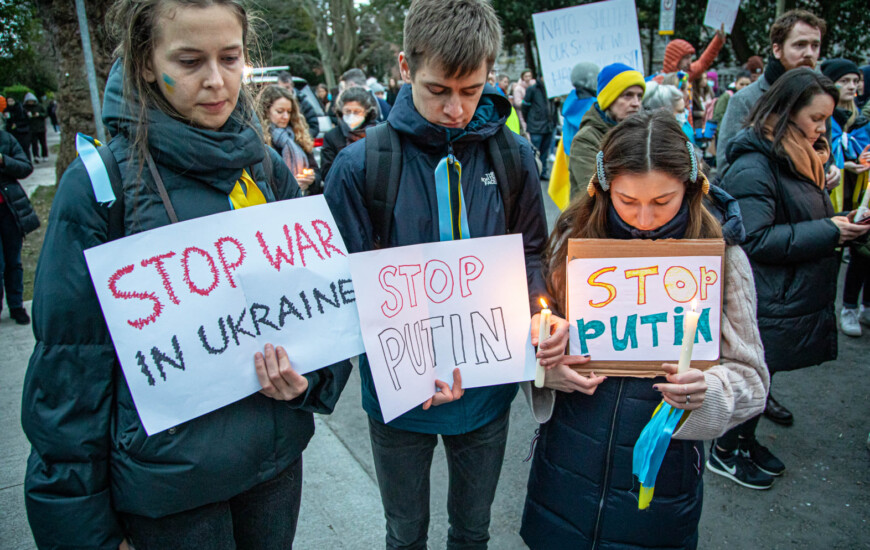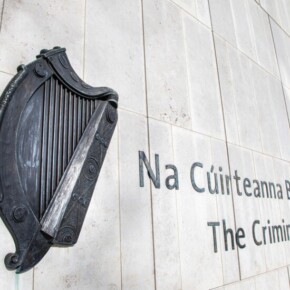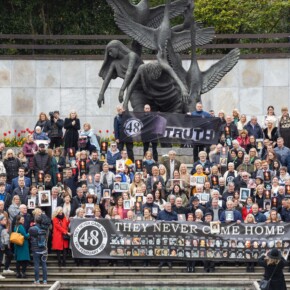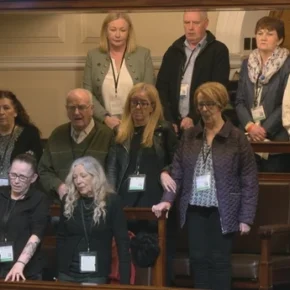Arrivals from Ukraine will drop following changes, says O’Gorman
Mike Finnerty 12 Dec 2023
The number of people coming to Ireland from Ukraine will drop as a result of changes implemented by Cabinet, Minister for Integration Roderic O’Gorman has predicted.
The current rate of €220 per week presently afforded to Ukranian refugees by Government will fall to €38.80 when they are in State accommodation, the same rate people of other nationalities are paid while in State accommodation.
In a bid to stem the arrival of refugees from Ukraine, the Irish diplomatic mission in Ukraine will advise people that they will only be eligible for State accommodation for 90 days.
The chief executive of the migrants rights organisation Doras, John Lannon told RTÉ that if the 90-day limit on accommodation is imposed, it would drive refugees into homelessness and force people into precarious positions.
“It’s likely to leave women, children and men on the streets. We know that there are already 6000 people stuck in Direct Provision with refugee status, but they can’t leave because there’s no affordable accommodation.”
There was no accommodation available for them, which was the reason why they were not leaving Direct Provision.”
Lannon said that the O’Gorman’s departments were still “carrying the can” when it comes to finding accommodation for refugees, which is a sentiment reportedly echoed by Green members of Cabinet.
The Department of Social Protection will also ramp up efforts to help Ukrainian refugees find suitable employment.
Earlier this year, O’Gorman is said to have told a Cabinet meeting that the responsibility for Ukranian refugees was falling to him exclusively and asked Fianna Fáil and Fine Gael for help in the matter.
It was suggested at the time that a new ministerial role with a specific focus on immigration was created, but the requests never came to fruition.
Just over 100,000 Ukrainian refugees have arrived in Ireland since the war began in February 2022, after Russian President Vladimir Putin launched an invasion.
The war has crawled to an essential stalemate as the winter months set in, but over 8 million people have fled Ukraine since the war started.
Neighbouring Poland has taken well over 1 million refugees since the war began, while Germany has taken 1.5 million.
The issue of Ukrainian refugees was a major factor in Poland’s recent election, with new Prime Minister Donald Tusk telling reporters that he aims to restore Poland and Ukraine’s relationship after it became strained under the leadership of former Prime Minister Mateusz Morawiecki.
Germany, which is governed by a coalition of traditional centre-left party Social Democratic Party, pro-business Free Democratic Party and the Green Party recently extended protection status to refugees until March 2025.
Sinn Féin leader Mary Lou McDonald expressed concern with Government’s new plans, saying that “there is not a plan in place to accommodate people for 90 days and it was not clear where they will find a place to stay after this period.”
An Taoiseach Leo Varadkar told the Dáil that “education will remain available to children coming from Ukraine as well as the provision of medical cards” to those fleeing the war.
However, Varadkar stated that Ireland could not award welfare to Ukrainian refugees that in his view exceeds those in other European Union nations, and these new cuts would bring Ireland in line with other European Union nations.
This line of reasoning was called into question by Social Democrats leader Holly Cairns.
“The Taoiseach has said supports for Ukrainian refugees are being cut to bring Ireland into line with other EU countries. But, in the Dáil today, he conceded that it was very difficult to make direct comparisons between supports being offered by different member states.” “As far as I am aware, there is one report, from the Oireachtas Library and Research Service, which details Temporary Protection Supports in various EU countries. However, that report comes with a large health warning at the top which cautions about making direct comparisons between supports.” “Clearly, the cost of living diverges wildly between EU member states while most EU countries also provide public services free of charge. In addition, some countries offer financial supports for refugees at federal and local level, making them hard to collate. It is therefore very difficult to make direct comparisons – something the Taoiseach himself has acknowledged.”
Varadkar told the Dáil in October that policy surrounding refugees “needs to change.”
He said that while “there is no limit to Ireland’s compassion for refugees” fleeing the war in Ukraine, there are limits to capacity.
“We’re very much at capacity at the moment and we just don’t know whether we’d be in a position to provide accommodation, and all those additional supports for another 30,000 to 50,000 people if that number arrived over the course of the next year.”
“Some of that is linked to the fact that we have a better offering in Ireland than would be the case in Northern Ireland, or Britain or France or other countries that are not too far from us.”
Other members of the opposition, such as Labour TD Ged Nash said Government had failed to build accommodation specifically for refugees, and claimed that Minister O’Gorman had been left “exposed” by Fianna Fáil and Fine Gael.
People Before Profit TD Richard Boyd Barrett said the decision to reduce supports for Ukrainian refugees was a “cynical deflection” from the “failure” to address the housing crisis.











